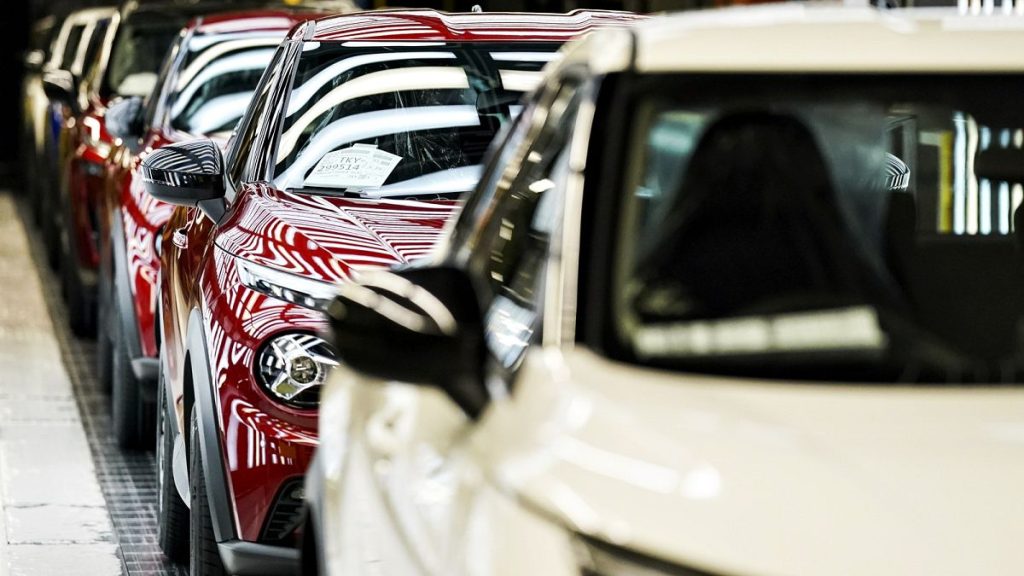Italy and Germany are advocating for the relaxation of EU targets for reducing car CO2 emissions and reconsidering the 2035 ban on the sale of petrol and diesel models. The Italian industry minister, Adolfo Urso, stated that the ban on tailpipe emissions by 2035 would not be achievable, and the two countries plan to propose bringing forward a review clause in the legislation to early 2025. This move comes after warnings from manufacturers about the collapse of Europe’s car industry and potential job losses in the sector. The European Automobile Manufacturers’ Association also called for the postponement of more stringent emissions limits following a drop in e-car sales.
The influential European automotive industry group, ACEA, which includes major car manufacturers like BMW, Ford, Renault, Volkswagen, and Volvo, has highlighted the challenges faced in achieving the necessary boost in production and adoption of zero-emission vehicles. The sales of electric cars have decreased significantly, and the market is increasingly dominated by larger SUV models, making it harder for carmakers to meet emissions targets. Currently, carmakers are required to ensure that car emissions average no more than 115.1 grammes per kilometer, with a tightening limit of 93.6g set for next year. Facing potential multi-billion-euro fines, ACEA has urged the EU to implement urgent relief measures to support the industry.
The European Commission believes that the industry still has time to meet emissions targets, as there are 15 months of car sales ahead. The Commission pointed out that the target for 2025 was agreed upon in 2019, providing the industry with the necessary time to adapt. However, further emissions reduction deadlines adopted last year mandate that only cars emitting no CO2 can be sold in the EU by 2035, effectively banning petrol and diesel models. A review clause inserted in the legislation, prompted by Germany, may allow for the continued registration of cars running on synthetic ‘low-carbon’ fuels, providing a potential reprieve for the internal combustion engine. The automotive lobby is pushing for this review, as well as a similar one for heavy goods vehicles, to be brought forward to 2025.
Various industrial sectors, including generators and battery manufacturers, are advocating for the EU to maintain its current targets to accelerate the electrification of Europe’s energy system. The push for stricter emissions limits is supported by sectors that stand to gain from increased electrification. Italy and Germany are rallying support from other EU members to ease CO2 emissions standards for cars and reconsider the 2035 ban on petrol and diesel models. The European automotive industry is facing challenges in meeting emissions targets as electric car sales have dipped, and larger SUV models dominate the market, making compliance with tighter limits difficult.
The proposal to relax EU targets and reconsider the ban on petrol and diesel models reflects concerns about the feasibility of achieving zero tailpipe emissions by 2035. The impact of the target on Europe’s car industry, as well as the potential for job losses in the sector, has prompted calls for a review of the legislation. The European Commission maintains that the industry still has time to meet emissions targets and adapt to the changing regulations. However, the automotive lobby, including major manufacturers, has urged the EU to implement urgent relief measures to support the industry in light of the challenges faced in achieving emissions reductions.
The debate over EU emissions standards for cars highlights the complex dynamics between environmental commitments, economic considerations, and industry interests. While some advocate for stricter targets to accelerate the transition to zero-emission vehicles, others emphasize the challenges faced by the automotive industry and the need for realistic and achievable goals. The outcome of this debate will have implications for the future of the European automotive sector, as well as broader efforts to reduce CO2 emissions and combat climate change. Italy and Germany’s push to relax EU CO2 emissions standards and review the 2035 ban on petrol and diesel models underscores the complexities and competing interests at play in shaping environmental policies and regulations in the automotive industry.


